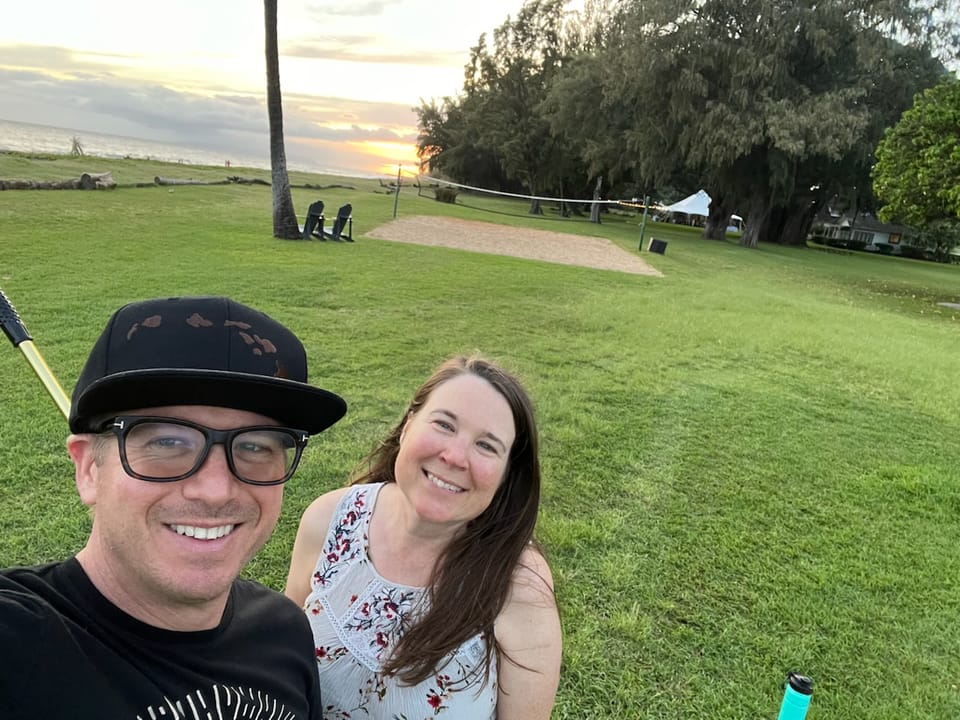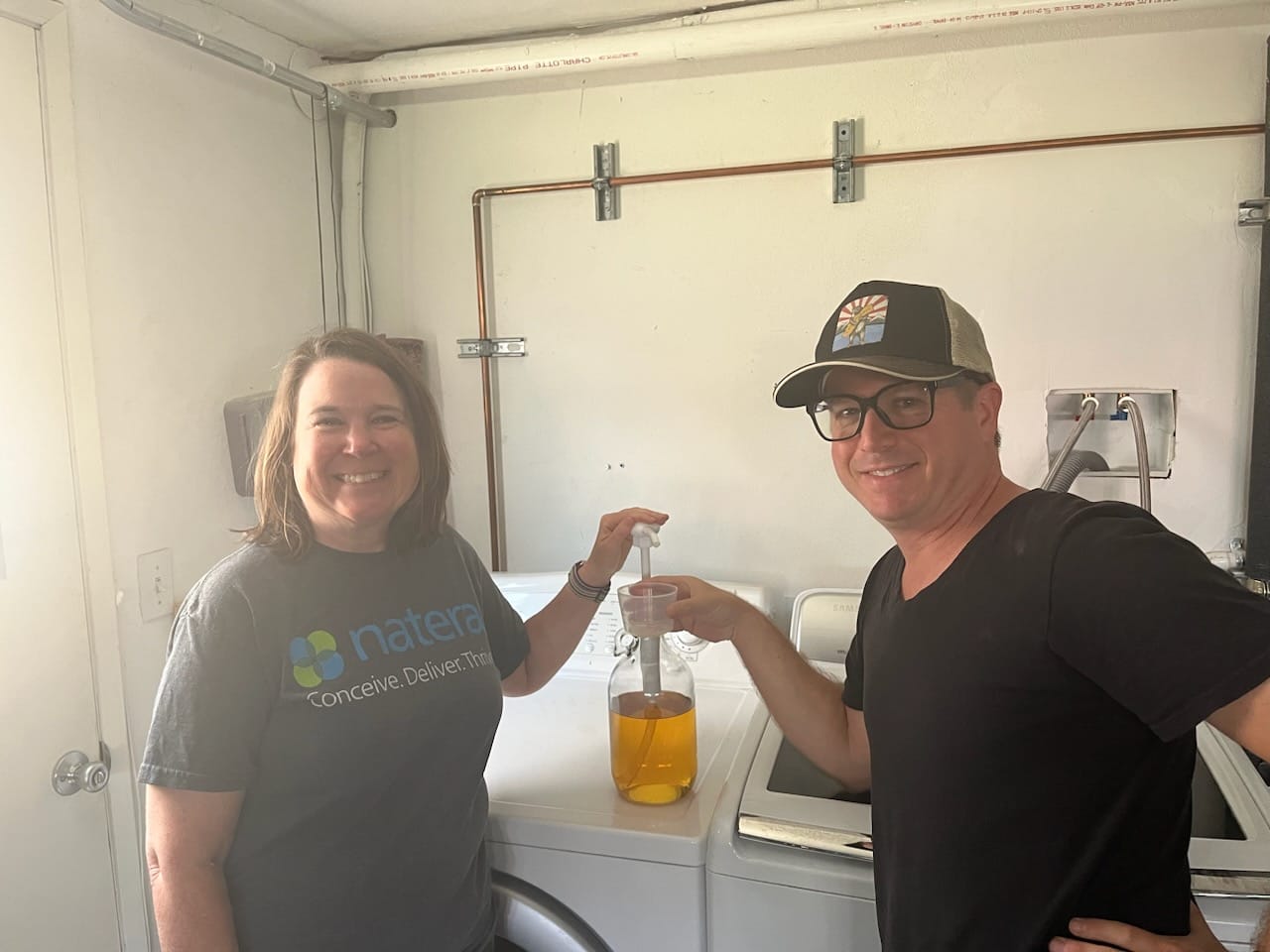Normalizing Sustainable Consumption: A Family’s Journey

by Rise Riyo, Community Outreach Manager, ZeroIn
As consumers in the United States, we have been handed the responsibility of addressing and resolving the global issues of the plastic waste crisis and climate change, two urgent issues still unclaimed and largely denied by the petrochemical and plastic industries.[1] As a result, many of us are looking for ways of mitigating the dire situation that we face, and in doing so, have adopted various ways of curbing our consumption of plastic-based ingredients in household products and plastic-wrapped packaged goods. ZeroIn takes a look at how local consumers in San Diego County are taking on the challenge of practicing waste minimization through sustainable consumption.
Sustainable consumption is the use of services and products that fill a human need while also reducing the negative impact on the environment.[2] I met up with Jeremy Johnston, a senior IP legal specialist, and spouse Angela McGowan, a legal operations analyst, to learn about their family’s journey of normalizing the process of waste minimization into their everyday lives.
“We’d been buying the big plastic jugs [of laundry detergent] for years, and I just was starting to really cringe at the thought of all those [plastic] bottles getting either tossed into landfills or into the oceans, and elsewhere,” explained Jeremy, “...it was weighing especially heavy on my conscience. It seemed almost to the point where… it was just unethical.”
The vast majority of household cleaning products and personal care products, offered to the public, are packaged in plastic and contain many toxic chemicals and microplastics in their ingredients. Microplastics are defined as small plastic pieces less than five millimeters [equivalent to 0.19685 inches] long, according to the U.S. National Oceanic and Atmospheric Administration (NOAA)[3] and the European Chemicals Agency[4]. They are harmful to the land, oceans, and to our bodies. “In 2019, U.S. plastic waste generation was estimated at 73 million metric tons [equivalent to 1.60937451e+11 pounds], corresponding to more than 220 kilograms [equivalent to 485.017 pounds] per inhabitant.”[5] [emphasis mine]
“I had been seeing some kind of ads…that were advertising laundry detergent [in sheet form] that is in a bag on Facebook for a while,” stated Jeremy. However, Angela had pointed out to him that there were microplastics in some of those products. Angela had also mentioned to Jeremy that she had discovered a new zero-waste grocery store not far from their home in Vista. Jeremy added, “I just got to the point where I told myself, you know what? I know exactly what to do.” Determined to move beyond microplastics, Johnston began refilling his glass bottles with non-toxic laundry soap and other eco-friendly refillable products at Sunshine Market & Refillery located in North County Oceanside, which was exactly what he was doing when I initially met him.
But Jeremy and Angela’s journeys didn’t begin there. As we chatted together, I learned that each were taught the detrimental effects of human-caused environmental pollution much earlier in their lives.
Jeremy’s mother began to teach him when he was a child about being conscious of waste for the benefit of the planet with the celebration of Earth Day in the 1990s. “[My mom] got involved [with the movement], and so she kind of instilled that value in me to be a little more aware of products, recycling, … wastefulness, and saving water,” explained Jeremy.
Angela, however, was informed while she was an undergraduate living in the upper midwest. “When I was in college, I was very into the environment, almost like a little bit of an activist. I worked at the Body Shop, and they were like… the original refill [shop]. …[you could] buy the shampoo and conditioner, and when it was used up, you brought in the bottles [to be refilled]. I really appreciated that,” stated McGowan.
After a move to a neighboring state, Angela found herself searching in nearby stores that would allow her to continue practicing a waste minimization lifestyle. “There wasn’t a Body Shop around me anymore, …and I just lost my way … because again, it [was] not convenient, it [was] expensive, and it [was] just easier to go out to the grocery store [to] buy the laundry detergent,” admitted Angela.
Angela’s desire to continue practicing a healthier lifestyle for herself, her family, and the planet was relit by Jeremy who expressed his discontent in buying large plastic bottles of laundry detergent from their nearby grocery store. Angela explained their engagement of sustainable consumerism as a transition, “[taking] little baby steps, you know?” Those small steps led their family to implement a lifestyle change, especially with their three sons.
For the past ten years, Angela avoided using single-use plastic bags when possible by placing their sons’ lunch food in reusable containers. The couple also spoke about teaching their sons about food waste, being mindful about turning off the lights, recycling products, and refilling household goods such as laundry detergent. Angela and Jeremy explained why they were buying the detergent from the zero-waste store to their sons, and were joyfully met with agreement from the boys who simply said “Oh yeah, that makes sense”.

“We taught them how to use a pump, the new way to do laundry. If we can get them to adopt just that when they grow up, …imagine setting these three boys off on their own [as adults], and they’re never going to be buying … one plastic laundry detergent bottle. How awesome is that?” exclaimed Jeremy.
I mentioned to Jeremy and Angela that it’s like planting seeds of knowledge and wisdom onto their sons. "You’re their role models.” And it seems to be paying off. Both parents proudly stated that their boys now ask the question, “Is this recyclable?” before placing some packaging into the trash bin. From generation to generation, sustainable consumerism is being passed down as a norm within this family. Now, how awesome is that?
Allen, Davis, PhD, Naomi Spoelman, Chelsea Linsley, and Alyssa Johl. (2024, February) “The Fraud of Plastic Recycling: How Big Oil and the plastics industry deceived the public for decades and caused the plastic waste crisis.” Center for Climate Integrity. Retrieved May 1, 2024 from https://climateintegrity.org/plastics-fraud ↩︎
Ford, Aiden. “Sustainable Consumption: Definition, Background, and Goals.” Study. Retrieved 26 June 2024 from Sustainable Consumption | Definition, Background & Goals - Lesson | Study.com. Retrieved 26 June 2024 ↩︎
Arthur, Courtney; Baker, Joel; Bamford, Holly (2009). "Proceedings of the International Research Workshop on the Occurrence, Effects and Fate of Microplastic Marine Debris" (PDF). NOAA Technical Memorandum. Archived (PDF) from the original on 28 April 2021. Retrieved 26 June 2024. ↩︎
European Chemicals Agency. "Restricting the use of intentionally added microplastic particles to consumer or professional use products of any kind". ECHA. European Commission. Archived from the original on 15 January 2022. Retrieved 26 June 2024. ↩︎
Author unknown. “Plastic waste in the U.S. – statistics & facts”. Statista. Retrieved 26 June 2024 from Plastic waste in the U.S. - statistics & facts | Statista. ↩︎
